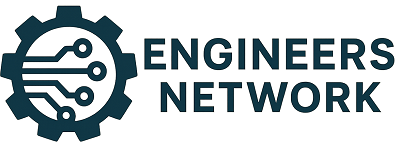Chemical Engineering is the branch of engineering that, with a solid foundation in mathematics, physics, chemistry and biochemistry, allows the development of innovative processes and products. It is also responsible for the design, installation and operation of processes aimed at transforming raw materials, chemical substances, living cells, microorganisms and energy into products that society requires.
The student of Chemical Engineering differs because …
- Optimizes the performance of industrial processes and products, identifying their limitations and opportunities.
- It uses modeling and computational simulation of phenomena and physical-chemical processes to understand and improve applications.
- It designs, develops and experimentally evaluates equipment and physical-chemical processes on a pilot scale.
- Participates in the development, characterization and testing of new processes and products for industrial and environmental uses.
- It engages with students, professors and external collaborators in interdisciplinary work teams through engineering and research projects with companies and universities in the world.
What is the mission of Chemical Engineers?
The mission of the Chemical Engineering program, in line with the mission defined as follows …
To train chemical engineers aware of the challenges of society at the local, regional and global level and with competencies that allow them to be leaders giving solutions comprehensive, sustainable, and innovative for the development and scientific research in the engineering of processes committed to the environment.
What are the professional profile?
The educational objectives of the program, which describe the achievements that graduates must obtain after 3 years of completion, are defined from the collaboration between professors, students (current and graduates) and employers. The professional of Chemical Engineering will achieve …
- Train graduates to design, operate, implement and manage processes, solutions and procedures of Engineering and Chemical Engineering in particular supported on a scientific and technical basis according to sustainability principles.
- Develop in the graduate critical thinking, creativity and initiative to respond in a sustainable way to the challenges the world.
- Train the graduate in an ethical and responsible environment, preparing him / her for teamwork and leadership
What are the Chemical Engineering Graduate Profile?
Chemical Engineering will give you the necessary tools to understand the chemical processes that will help you transform your talent into reality, because you will be able to scale an industrial level product with solid knowledge of engineering, quality and safety. At the end of it, the student will be able to …
- Apply knowledge of mathematics, science and engineering in the solution of complex problems of process engineering.
- Conduct studies of complex problems using knowledge based on research and research methods including the design and conduct of experiments, the analysis and interpretation of information, and the synthesis of information to produce valid conclusions.
- Design, develop and manage processes that optimize the manufacture of products, in basic chemical, biotechnology, beverage and food industries, as well as cement and gas.
- Become a member or leader in various multidisciplinary teams.
- Identify, formulate, search for information and analyze complex engineering problems to reach informed conclusions using basic principles of mathematics, natural sciences and engineering sciences.
- Apply ethical principles and commit to ethics and professional responsibilities and standards in the practice of engineering.
- Communicate effectively in complex engineering activities with the engineering community and society in general, for example, being able to understand and write effective reports and design documentation, make effective presentations, and give and receive clear instructions.
- Understand and evaluate the impact of solutions to complex engineering problems in a global, economic, environmental and social context.
- Recognize the need for lifelong learning and the ability to face it in the broader context of technological changes.
- Apply informed reasoning through contextual knowledge to evaluate social, health, safety, legal and cultural issues and the consequent responsibilities relevant to the professional practice of engineering.
- Create, select and use techniques, skills, resources and tools of modern engineering and information technologies, including prediction and modeling, in complex engineering activities, with an understanding of the limitations.
- Demonstrate knowledge and understanding of engineering management principles and economic decision-making and apply them in their own work, as a member and / or leader of a team, to manage projects and in multidisciplinary environments.





Leave a Reply